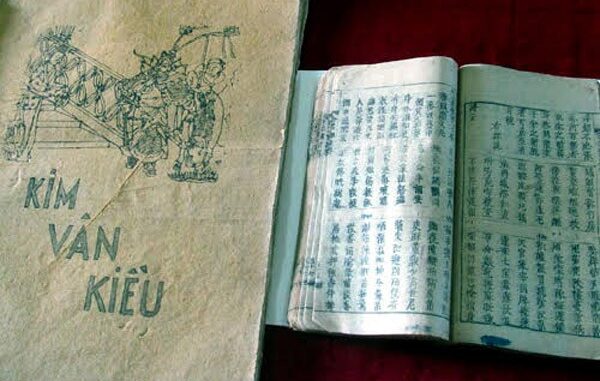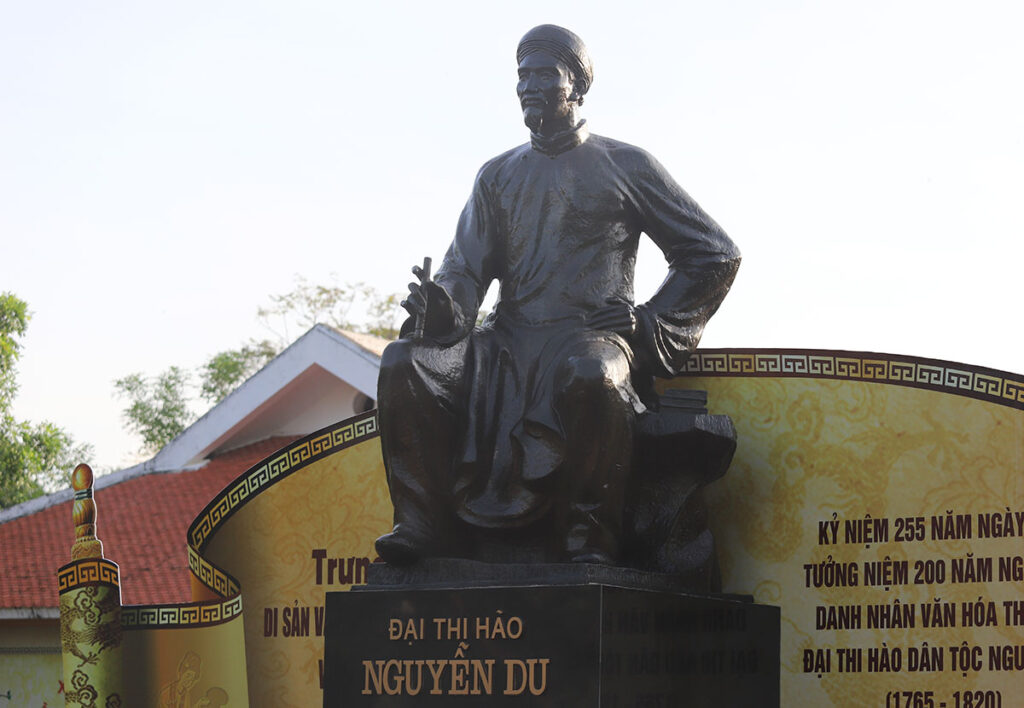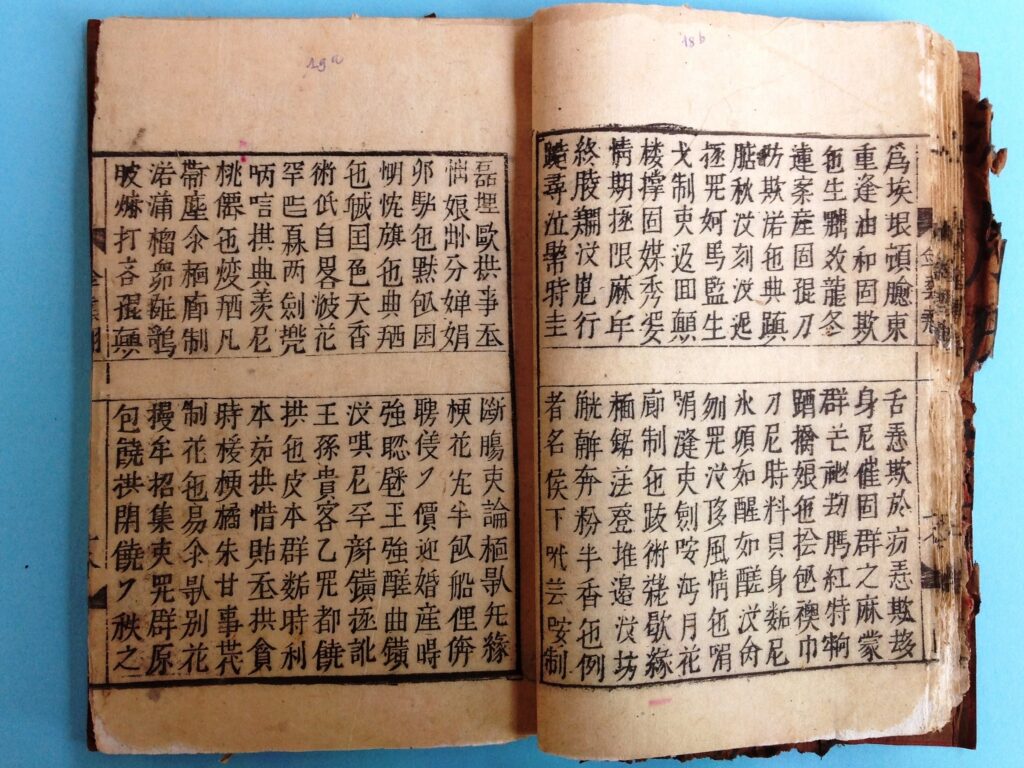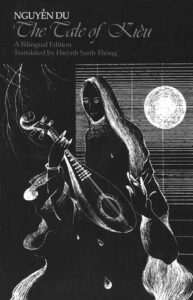
The Tale of Kieu is an epic poem in Vietnamese written by Nguyen Du (1765-1820), and is widely regarded as the most significant work of Vietnamese literature. The original title in Vietnamese is Doan Truong Tan Thanh (A New Cry From a Broken Heart), but it is better known as Truyen Kieu (The Tale of Kieu). In 3,254 verses, written in Luc-bat (six-eight) meter, the poem recounts the life, trials and tribulations of Thuy Kieu, a beautiful and talented young woman, who has to sacrifice herself to save her family.
The History

The poem is based on the plot of a seventeenth-century Chinese novel, Jin Yun Qiao (The Story of Golden Swallow), but Nguyen Du adapted it to reflect the social and political upheavals at the end of the 18th century in Vietnam. Vietnam at that time was divided and ruled by the Trinh lords in the north and the Nguyen lords in the south, while the Tay Son rebels overthrew both of them and established a new dynasty. Nguyen Du was loyal to the Le dynasty, the nominal rulers of Vietnam, and hoped for their restoration. He joined the new Nguyen dynasty, founded by Nguyen Anh in 1802, with some reluctance. His situation of conflicting loyalties is partially analogous to the situation of Thuy Kieu, who submitted to circumstances but her heart longed for her first love.
Kieu's Story

The story begins with Thuy Kieu visiting her ancestors’ graves with her younger sister Thuy Van and brother Vuong Quan. She meets and falls in love with Kim Trong, a young scholar, and they pledge to marry each other. However, their happiness is short-lived, as Kieu’s father and brother are arrested for a false accusation of treason. To save them, Kieu sells herself into marriage with a middle-aged man, Ma Giam Sinh, not knowing that he is a pimp, and is forced into prostitution. She endures many hardships and humiliations, such as being raped, sold, kidnapped, imprisoned, and tortured. She also meets many people who help or harm her, such as Tu Hai, a cruel mandarin who wants to possess her; Ho Ton Hien, a kind scholar who rescues her; So Khanh, a cunning poet who betrays her; Dam Tien, a faithful maid who accompanies her; Thuc Sinh, a Buddhist monk who enlightens her; and Giac Duyen, a nun who guides her.
Throughout her ordeal, Kieu never forgets Kim Trong, who also searches for her for many years. They are reunited several times, but fate always separates them. Kieu also tries to kill herself several times, but is always saved by someone or something. She eventually renounces her worldly attachments and becomes a nun, while Kim Trong marries her sister Thuy Van. The poem ends with a reunion of the three main characters, who express their gratitude, regret, and acceptance of their destiny.
Literature and cultural values

The original text of “The Tale of Kieu” was written in Vietnamese using the vernacular chữ Nôm script. Chữ Nôm is a logographic writing system formerly used to write the Vietnamese language. It uses Chinese characters (chữ Hán) to represent Sino-Vietnamese vocabulary and some native Vietnamese words, with other words represented by new characters created using a variety of methods, including phono-semantic compounds. It is also a unique language created by Vietnamese people.
Foreigners who are passionate in Vietnam Literature and The Tale of Kieu, can find the book “The Tale of Kieu: A Bilingual Edition of Nguyen Du’s Truyen Kieu” which was translated by Nguyen Sanh Thong and was published around the world.
The Tale of Kieu is not only a moving story of love and sacrifice, but also a rich and complex work of art that showcases the beauty and diversity of the Vietnamese language and culture. It uses various literary devices, such as metaphors, allusions, puns, and homophones, to convey multiple layers of meaning and emotion. It also incorporates elements from Confucianism, Buddhism, Taoism, and folk beliefs, to reflect the values and worldview of the Vietnamese people. It is a masterpiece of Vietnamese literature that has inspired and influenced many generations of readers and writers.

Vietnam warmly welcomes you to enjoy Vietnamese cuisine and culture and to make your trip go smoothly as the very first step, make your plan into reality by obtaining a Vietnam visa at https://www.vietnam-evisa.org.